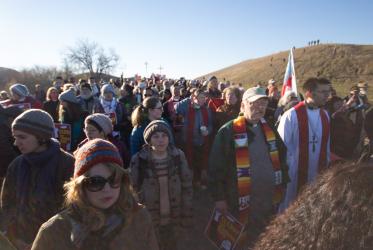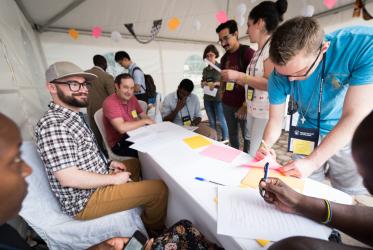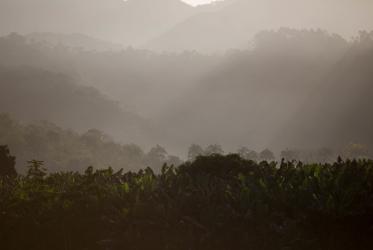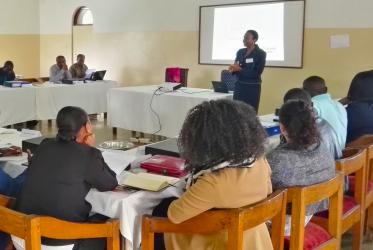Displaying 1 - 20 of 23
World Council of Churches plans pilgrimage to Marshall Islands
09 November 2023
Rethinking Ecological Relationships in the Anthropocene era
11 - 13 February 2021
Is God present - even amid hurricane’s wrath?
07 September 2019
WCC moderator speaks at Justice Conference in Norway
09 November 2018
Diakonia: “a tool to reach abundance of life”
24 July 2018
‘Sokoni’ transforms marketplace into mission
13 March 2018
Protect the Amazon, urges WCC statement
22 November 2017
African youth takes stand at first ever WCC Eco-School
03 August 2017
Applications open for WCC Eco-School
10 May 2017
Ecumenical Patriarch visits WCC
24 April 2017
Seven weeks of Lent highlight water crisis in Africa
01 March 2017












